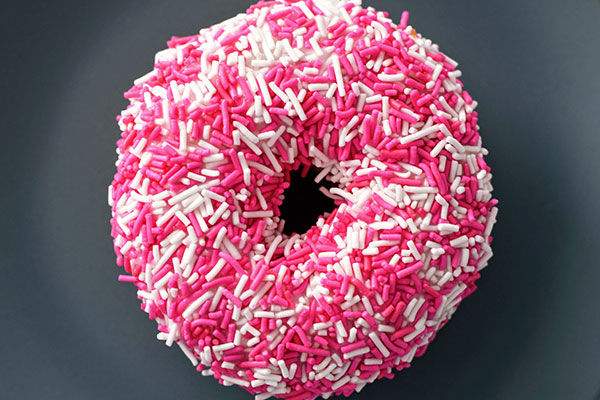As a progressive Jew and an environmentalist, I think about concentric circles a lot. The Hebrew phrase ‘tikun olam’ means ‘to repair the world’ and this Kabbalistic tradition represents our duty and a responsibility to proactively look after the natural environment and seek social justice.
While the thought of fixing the whole planet is a rather overwhelming concept, we start by improving ourselves as individuals, at home, then our own communities and eventually that reaches beyond to positively impact the whole world. Each improvement is like a ripple on the surface of a pond, and when lots of people take this approach, the ripples overlap and create a big splash.
That’s exactly what happened a few years ago when my daughter and I ran our own local campaign, Plastic Clever Salcombe, inspired by Amy and Ella Meek’s Kids Against Plastic mission. It started from small beginnings. At home, we had ditched as much single-use plastic as possible but we still often came across unnecessary litter on the beach, so we felt compelled to take our action to the next level – our community.
We persuaded local cafés, hotels and restaurants to swap single-use straws, carrier bags, takeaway cups and drinks bottles for reusable options and soon our concentric circle grew.
Within two years, more than 60 per cent of Salcombe businesses had been awarded ‘plastic clever’ window stickers. We helped regatta organisers find more eco-friendly ways to run their events, spoke at assemblies in schools all around the South Hams, organised regular beach cleans and paddleboarded 22 miles around the estuary over the course of two days, collecting litter along the way.
Public awareness sky-rocketed and even last month, my daughter received a special card from a school friend thanking us for ‘making this change and helping to save the planet’. So, the ripples continue to have an impact.
The idea of concentric circles doesn’t just apply to Judaism, of course. Many years ago, while working as TV researcher for BBC Springwatch, my job was to find engaging ways to showcase British wildlife and highlight the amazing seasonal stories unfurling on our doorstep. For 15 years, Springwatch has promoted the intrinsic value of getting to know and looking after our own ‘local patch’. Something that’s more relevant than ever right now with the show’s presenters and audience all in lockdown at home.
You can connect with your local patch by nurturing tomato saplings in a windowbox, listening to the dawn chorus or watching Springwatch nest cams to see blue tit chicks fledging. Just being surrounded by nature has such a magical healing power during times of stress, anxiety and trauma. And once we love something, we’re much more likely to want to protect it, however big or small our local patch might be.

Going one step further, some experts propose that healthier, more sustainable 21st century economies should revolve on circular systems at a city-wide, nationwide and global scale, rather than endless linear GDP growth. Oxford University economist Kate Raworth uses concentric circles as the framework for her pioneering ‘doughnut economics’, that sets limits for planetary and social boundaries so that we live within our means.
The doughnut’s inner circle represents a social foundation, including minimum requirements for food, housing and energy, as derived from the UN’s sustainable development goals. The outer circle symbolises the ecological ceiling of planetary limits, as defined by scientists, from climate to biodiversity, soil health and the ozone layer.
Raworth calls the space within these two circles “the sweet spot for humanity” and says that “what we do to this Earth in the next 50 years will shape the next 10,000.”
In April 2020, the forward-thinking city of Amsterdam adopted Raworth’s model as the starting point for public policy decisions as it navigates how to rebuild its economy post-Covid-19. It’s a powerful vision. Doughnuts emphasise the importance of linking environmental sustainability with social justice, as does tikun olam. And it all starts with a simple circle.















Thanks, Anna! It all seems to big and overwhelming sometimes, so this is a great reminder that I can start with small steps here at home, and go from there…